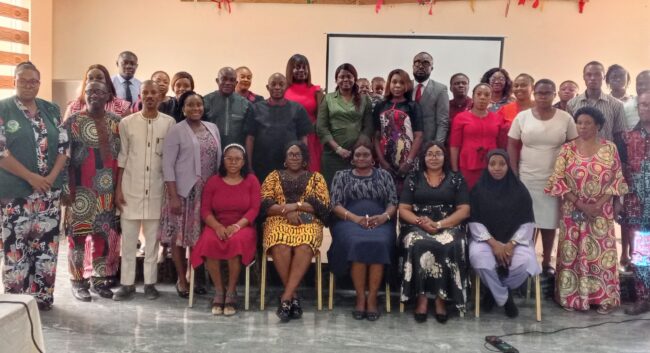The United Nations Children’s Fund (UNICEF) and the Cross River Primary Health Care Development Agency (CRPHCDA) have reiterated that the Ten Steps to Successful Breastfeeding are maternity practices proven to support the successful achievement of exclusive breastfeeding.
In a recent meeting in Calabar with private healthcare professionals, the focus was on the Ten Steps to Successful Breastfeeding, which outlines essential policies and practices for maternity and newborn services aimed at promoting breastfeeding in the workplace.
Dr Vivien Mesembe Otu, the Director-General of CRPHCDA, called on employers in both sectors to foster a supportive environment that enables breastfeeding mothers to care for their infants.
She acknowledged the significant challenges working mothers face in exclusively breastfeeding but expressed optimism that supportive employer policies could help address these issues.
“We aim to enhance breastfeeding rates in the state. Please assist us in providing proper counselling and raising awareness about exclusive breastfeeding, which is crucial for addressing malnutrition in a cost-effective manner. We seek collaboration to improve healthcare delivery and promote exclusive breastfeeding,” she emphasised.
Additionally, Dr Joan Ikobah from the Department of Paediatrics at UCTH discussed the Zero Water Campaign, aligning with the Global Breastfeeding Collective’s mission to boost global investment and policy changes for breastfeeding advocacy.
She warned against giving water, liquids, or solid foods to infants before six months, highlighting the risks of contaminated fluids and malnutrition while noting that breast milk itself is primarily composed of water.
Dr Winifred Ogar, the Cross River State Nutrition Officer, reinforced that adhering to the Ten Steps could boost breastfeeding rates by 50% by 2025.
A key activity at the meeting included distributing calendars featuring information on the Ten Steps to Successful Breastfeeding to private medical practitioners for display in their facilities.
READ MORE FROM: NIGERIAN TRIBUNE
